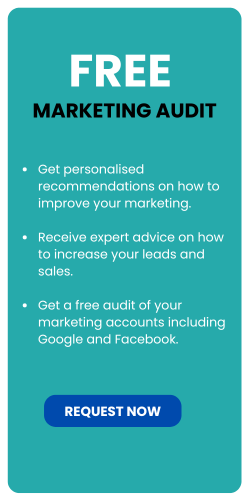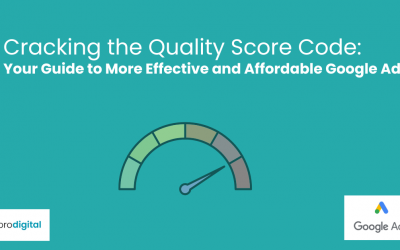In the dynamic world of online advertising, a user’s attention span is precious. When it comes to Google Ads, your text ads are the battle cry, the first impression that can make or break your click-through rate (CTR) and ultimately, your campaign’s success.
This comprehensive guide equips you with the knowledge and strategies to craft compelling text ads that resonate with your target audience and drive conversions.
Unveiling the Text Ad Landscape: Understanding the Battlefield
Before diving into writing, let’s explore the basic building blocks of a Google Ads text ad:
- Headline 1 (30 characters): The first and often most prominent line of your ad. It should grab attention and succinctly convey your value proposition.
- Headline 2 (30 characters): Provides additional information to entice users with a specific benefit or call to action (CTA).
- Description (90 characters): Expands on your offering, highlighting key features and emphasizing why users should click your ad.
- Path 1 & Path 2 (15 characters each): Optional extensions providing additional website navigation options.
Understanding these components and character limitations is crucial for crafting concise yet impactful messaging.
Pro Tip: Include 1 or 2 keywords in headlines, descriptions and paths. Doing this will make Google see your ad as more relevant and will reward you with better quality scores (which can reduce your click costs and improve the positioning of your ads)
The Art of Headline Crafting: Captivate in 30 Characters
Headlines are the first impression your ad makes. Here’s how to ensure they capture attention:
- Focus on Benefits: Highlight the value proposition you offer. What problem do you solve or what need do you fulfil? (e.g., “Boost Sales Instantly” or “Free Shipping on All Orders”)
- Use Power Words: Incorporate action verbs and strong adjectives to grab attention. (e.g., “Increase Conversions”, “Guaranteed Results”)
- Target Keywords: Strategically include relevant keywords to enhance ad relevance and trigger user searches.
- Maintain Clarity: Keep your message concise and easy to understand within the 30-character limit.
Pro Tip: Write multiple headlines and test them using Google Ads A/B testing to identify the most effective options.
Crafting Compelling Descriptions: Expand Your Value Proposition
The description allows you to elaborate on your headlines and convince users to click. Here’s how to make the most of it:
- Highlight Key Features: Expand on your offerings and showcase unique selling points. (e.g., “Wide Selection of Products”, “Expert Customer Support”)
- Incorporate a Strong Call to Action (CTA): Tell users what you want them to do – “Shop Now,” “Learn More,” or “Get a Quote.”
- Maintain Keyword Relevance: While not essential for every character, consider incorporating additional relevant keywords to strengthen ad ranking.
- Maintain Readability: Write in a clear and concise manner, avoiding excessive jargon or complex sentence structures.
Remember: 90 characters is not a lot, so prioritize the most relevant and compelling information to entice clicks.
Keyword Magic: Weaving Relevance into Your Text Ads
Keywords are the cornerstone of a successful Google Ads campaign. Here’s how to integrate them effectively in your text ads:
- Keyword Research is Key: Conduct thorough keyword research to identify relevant terms your target audience uses to search for products or services like yours.
- Keyword Placement Matters: Strategically include keywords in your headlines and descriptions to boost ad rank and relevance.
- Don’t Keyword Stuff: Maintain a natural flow in your ad copy. Prioritize user experience over excessive keyword inclusion.
- Consider Broad Match Audiences: While using relevant keywords is crucial, don’t neglect broad match audiences to potentially reach users with similar search queries.
Pro Tip: Utilize Google Ads keyword tools and competitor analysis to discover valuable keyword opportunities.
Beyond the Basics: Advanced Text Ad Techniques for Savvy Advertisers
Once you’ve mastered the fundamentals, consider these advanced techniques to elevate your text ads:
- Ad Extensions: Utilize extensions like sitelink extensions, call extensions, and location extensions to provide additional information and increase ad visibility.
- Responsive Search Ads (RSAs): Leverage RSAs, which allow Google to automatically generate ad variations based on your headlines and descriptions.
- Location Targeting: Tailor your ad message to specific geographic locations to enhance relevance and appeal.
- Dynamic Search Ads (DSAs): For e-commerce businesses, consider DSAs that automatically generate ad copy based on your website content.
- Call to Action (CTA) Variations: Test different CTA’s to see which ones resonate most with your audience. (e.g., “Shop Now” vs. “Learn More”)
Remember: Experimentation is key! Continuously test and refine your text ads based on performance data to optimize your campaigns for maximum impact.
The Performance Compass: A/B Testing and Monitoring Success
Once your text ads are live, the journey doesn’t end. Here’s how to ensure continuous improvement:
- A/B Testing: The cornerstone of successful text ad optimization. Test different variations of headlines, descriptions, and CTA’s to identify the best performing combinations. Google Ads offers A/B testing functionality to streamline this process.
- Monitor Key Metrics: Track metrics like click-through rate (CTR), conversion rate, and cost-per-acquisition (CPA) to assess the effectiveness of your text ads. These metrics will guide your optimization efforts.
- Quality Score Matters: A high Quality Score in Google Ads indicates relevance and can lead to lower costs and improved ad positions. Ensure your ad copy aligns with your keywords and landing page content to maintain a good Quality Score.
- Search Term Reports: Analyse search term reports to identify user queries triggering your ads. This can help you refine your keyword strategy and potentially uncover new ad copy opportunities.
By actively monitoring performance and continuously testing, you can ensure your text ads stay optimized and deliver exceptional results.
Common Text Ad Pitfalls to Avoid
While crafting compelling text ads is crucial, here are some pitfalls to be aware of:
- Keyword Stuffing: Forcing keywords into your ad copy can hinder readability and negatively impact user experience. Use 1 keyword in your title, 2 in your descriptions and one in the path field
- Generic Messaging: Avoid generic messages that don’t resonate with your target audience. Highlight your unique selling points and value proposition.
- Misleading Claims: Don’t make exaggerated or false claims in your ad copy. This can damage your brand reputation and lead to user frustration.
- Poor Mobile Optimization: With the majority of searches happening on mobile devices, ensure your text ads are optimized for smaller screens and user behavior on mobile.
By avoiding these pitfalls and focusing on user-centric, compelling copy, you can create text ads that drive clicks, conversions, and ultimately, business growth.
Conclusion: The Power of Persuasive Copy
Writing effective text ads requires a blend of creativity, strategy, and data analysis. By understanding the core building blocks of a text ad, incorporating user-centric messaging, and utilizing advanced techniques like A/B testing, you can craft compelling copy that resonates with your target audience. Remember, the journey doesn’t end with writing the ad; continuous monitoring and optimization are vital for sustained success. With a commitment to crafting persuasive text ads, you can transform your Google Ads campaigns into powerful tools for achieving your marketing objectives and driving business growth.






